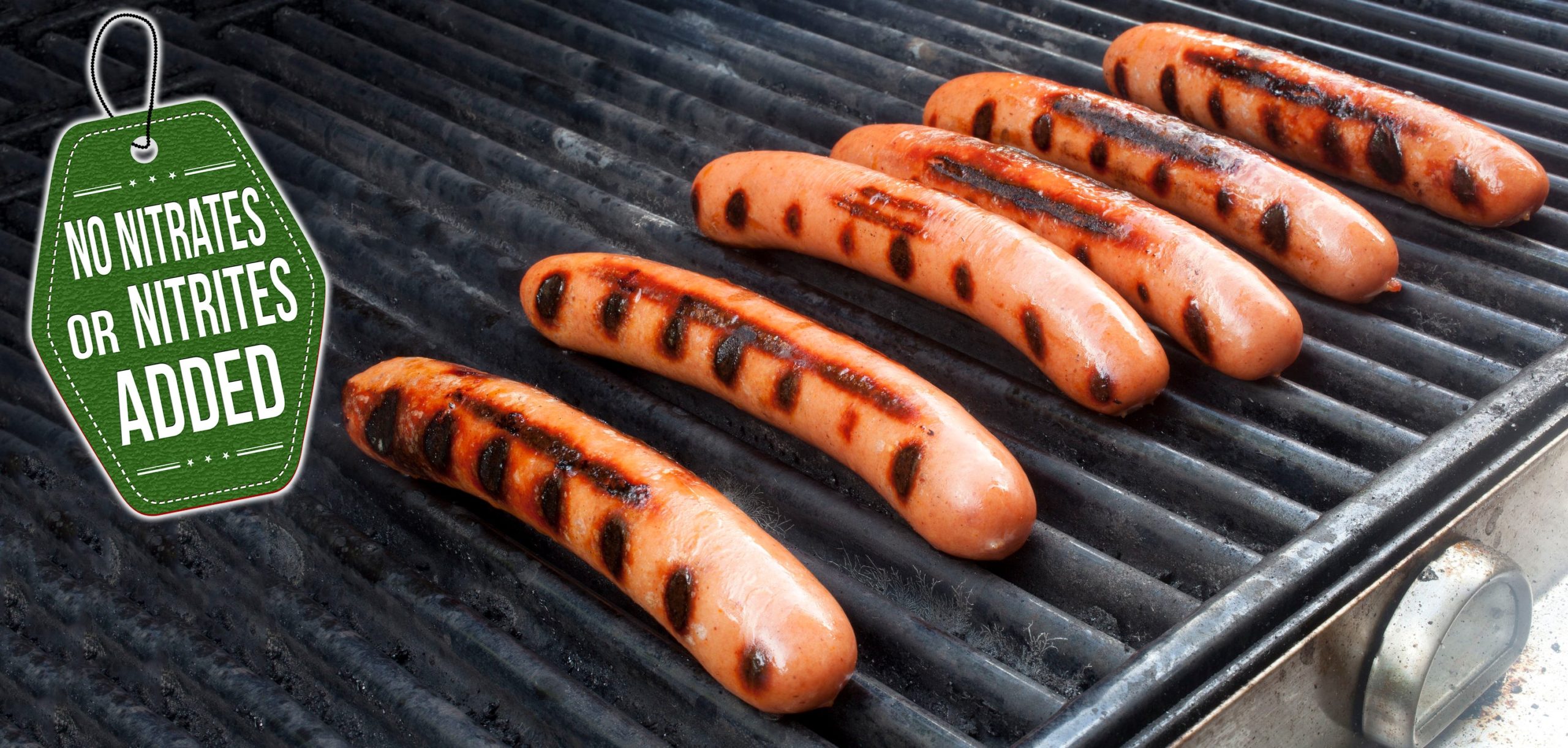Whether Artificial or Not, Nitrites in Food are Harming You

If you’re planning on having a cookout, you might have your eye on hot dogs made without artificial nitrites over regular wieners, thinking they’re a healthier option. But it might not matter whether your dinner is free of artificial nitrites and nitrates or not, as both may cause cancer whether they come from a natural or artificial source. [1]
Studies suggest that processed meats, including hot dogs and cold cuts, increase the risk of numerous types of cancer, including colon, stomach, and pancreatic. It is suggested that the nitrates in these foods – added for preservation of coloring and flavoring – that creates the cancer risk. Processed meats are also associated with an increased risk of diabetes, decreased lung function, and a higher risk of chronic obstructive pulmonary disease, or COPD.

In 2015, the International Agency for Research on Cancer (IARC) wing of the World Health Organization (WHO) classified processed meat as a carcinogen, and red meat as a “possible carcinogen.” The group found that eating just 1 hot dog a day – 50 grams of processed meat – was enough to boost cancer risk.
This classification has given rise to all varieties of products free of artificial nitrites. Oscar Mayer, for instance, is proudly advertising that its new hot dog recipe uses nitrite derived from celery juice instead of artificial sodium nitrite, which is used to preserve the pinkish colors of processed meats and to prevent botulism. [2]
Oscar Mayer’s parent company, Kraft Heinz, says it has removed sodium nitrite from the product to reflect increasing buyer demand for “all-natural” foods.
Greg Guidotti, head of marketing at Oscar Mayer, said:
“We know that consumer preferences will continue to evolve, and we will continue to evolve our portfolio with them.
In our old recipe, we added sodium nitrite for curing and food safety purposes. In the new recipe, the product is uncured and celery juice only fulfills a food safety function.”
Guidotti adds that “the amount (of nitrites from celery juice) that makes it into our finished hot dogs is so insignificant it cannot even be measured.”

Read: Study: Eating More Plant Proteins Offsets “Dangers of Eating Meat”
Ball Park pulled artificial nitrites and nitrates from its beef hot dogs in April 2017, except for those derived from celery juice powder or sea salt. Sodium nitrite is still an ingredient in Ball Park’s classic and turkey franks. Tyson Foods, which owns Ball Park, said in a statement:
“We know consumers want more transparency when it comes to what’s in the food they eat, and we want them to know we’re listening. Hot dogs get their distinct taste and texture everyone loves from a curation process. The curing ingredient may be sodium nitrite or a natural alternative, such as celery juice powder. Regardless, both are safe and have the same effects and benefits to the hot dog.”
The Source of Nitrites Doesn’t Matter, Experts Say
But health experts say it makes no difference where nitrites come from, they’re all pretty bad for you. [1]
Kana Wu, a research scientist at Harvard’s school of public health, said it’s best to just think of processed meat made with natural ingredients the same as those made with artificial nitrites.
Wu was part of the IARC panel of scientists behind the classification of processed meat as carcinogenic.
Nitrates in processed meats can combine with compounds found in meat at cooked at high temperatures to fuel the formation of known human carcinogens called nitrosamines. Both natural and artificial nitrites can trigger the chemical process, including celery juice.
The nitrites you get by eating whole vegetables are harmless because veggies contain antioxidants that prevent the formation of nitrosamines.
Read: Avoiding Nitrates and Nitrates Might Help You Avoid Migraines
The natural nitrites in Oscar Mayer’s hotdogs are now listed as celery juice that has been treated with bacterial culture. This turns the naturally-occurring nitrates in celery juice into nitrates that serve a similar purpose.
The Center for Science in the Public Interest agrees that nitrates are dangerous in any form, and cites a WHO report stating that warning labels should be placed on processed meats, regardless of how they’re made.
But if you roast a hot dog over a campfire a few times this summer, don’t fret too much. Just make sure that hot dogs are a once-in-a-while treat and not a regular meal choice.
Sources:
[1] CBS News
[2] Chicago Tribune
